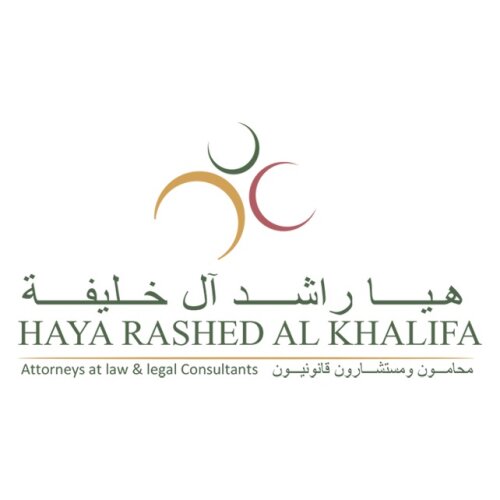Best Private Client Lawyers in Manama
Share your needs with us, get contacted by law firms.
Free. Takes 2 min.
List of the best lawyers in Manama, Bahrain
About Private Client Law in Manama, Bahrain
Private Client law in Manama, Bahrain encompasses a wide range of legal services tailored for individuals, families, and family-owned businesses. This area of law primarily deals with personal wealth management, asset protection, estate planning, inheritance matters, wills, trusts, real estate transactions, and family disputes. Private Client lawyers work with both Bahraini nationals and expatriates to ensure personal affairs are structured effectively and remain compliant with Bahrain's legal framework governed by Sharia and civil law. These legal professionals provide guidance on succession planning, tax implications, guardianship concerns, and support with cross-border issues or assets.
Why You May Need a Lawyer
There are several situations where you might need a Private Client lawyer in Manama. Common reasons include:
- Drafting or updating a will to reflect your wishes and ensure your assets are protected
- Setting up trusts or foundations to manage wealth and safeguard beneficiaries
- Resolving inheritance and succession disputes among family members
- Navigating family law matters, including divorce, child custody, or financial settlements
- Understanding Bahrain’s local laws regarding property, especially for expatriates
- Planning for tax efficiency and regulatory compliance with local or international obligations
- Managing the estate of a deceased relative, including probate and transfer of assets
- Appointing guardians or making arrangements for minors and dependents
- Addressing cross-border legal issues, such as overseas property or beneficiaries living abroad
Legal advice is particularly critical as personal and family wealth management in Bahrain involves both Islamic Sharia and local civil law, which can be complex for those unfamiliar with the system.
Local Laws Overview
Several key legal aspects affect Private Clients in Manama:
- Inheritance and Succession Laws: Inheritance in Bahrain is heavily influenced by Sharia law for Muslims, especially in determining shares for heirs. Non-Muslims may have additional options for wills and distribution of assets but should seek guidance to navigate the system.
- Wills and Estate Planning: Both Bahraini and expatriate residents can draft wills, although certain formalities must be satisfied. In the absence of a valid will, local inheritance laws will apply, which may differ from personal wishes.
- Trusts and Foundations: Bahrain has enacted legislation enabling the establishment of trusts and foundations for asset protection, although their operation must adhere to specific legal requirements.
- Real Estate Ownership: Expatriates can purchase property in designated freehold areas, and associated ownership rules must be strictly followed.
- Family Law: Matters like marriage, divorce, and child custody are subject to religious personal status laws, which vary for Muslims and non-Muslims.
- Taxation and Regulatory Compliance: While Bahrain has no personal income tax, certain other taxes, fees, and reporting obligations may apply, especially for international clients.
Understanding the interaction between civil law and Sharia principles is crucial in all private client matters in Bahrain.
Frequently Asked Questions
What is the process of writing a will in Bahrain?
To write a will in Bahrain, you must follow specific formalities, including having your will witnessed and, in many cases, notarized. Muslim residents should be aware that Sharia principles may limit how assets are distributed, while non-Muslims have more leeway but should consult a lawyer to ensure validity.
How are assets distributed if someone dies without a will?
If a person dies intestate, assets are distributed according to Bahrain’s inheritance laws. For Muslims, Sharia law governs the division of estates, allocating shares to heirs according to prescribed formulas. Non-Muslims may have their home country’s laws apply in some cases, but local laws often take precedence.
Can expatriates buy property in Manama?
Yes, expatriates can buy property in designated freehold zones in Manama. There are legal processes and eligibility criteria to follow, and it is advisable to engage a lawyer to oversee transactions and ensure compliance with all regulations.
How does divorce law work for expatriates in Bahrain?
Divorce laws in Bahrain depend on religion and nationality. Muslim expatriates are generally governed by Sharia-based family law, while non-Muslims may have the option to have their home country’s laws applied in certain circumstances. Legal guidance is recommended to clarify applicable rules and protect interests.
What is probate, and is it required in Bahrain?
Probate is the legal process of authenticating a deceased person’s will and distributing their estate. In Bahrain, this process is handled by the local courts and may involve hearings, especially if the estate is disputed or complex.
Are trusts recognized in Bahrain for asset protection?
Yes, the Bahrain Trust Law allows individuals to establish trusts. However, the rules and requirements differ from other jurisdictions. A specialized lawyer should be consulted to ensure your trust is compliant and effective.
Who can be appointed as a guardian for children in Bahrain?
Guardians for minors are usually appointed through a will or by court order. Muslim families are governed by Sharia principles, with guardians typically being close male relatives, while non-Muslims may appoint guardians according to their own traditions, subject to court approval.
What happens if there are inheritance disputes?
Inheritance disputes are resolved in court. Both Sharia and civil courts may be involved, depending on the nature of the dispute. Alternative dispute resolution mechanisms like mediation can sometimes be utilized to avoid lengthy court proceedings.
Can foreigners establish a foundation in Bahrain?
Yes, Bahrain allows foreigners to establish foundations for estate and wealth planning. The legal process involves registration and compliance with relevant Bahraini laws.
How can I ensure my overseas assets are included in my estate plan?
You should seek advice from both Bahraini and international lawyers to create a coordinated estate plan. Ensure all documents are valid in each jurisdiction and clearly specify your wishes regarding overseas assets.
Additional Resources
If you need assistance or information about Private Client legal matters in Manama, Bahrain, consider reaching out to these organizations:
- Bahrain Ministry of Justice, Islamic Affairs and Endowments - Handles wills, probate, and family law matters
- Bahrain Bar Society - Offers a directory of licensed lawyers and law firms
- Notary Public Office, Ministry of Justice - For notarization and authentication of legal documents
- Bahrain Chamber for Dispute Resolution - Provides mediation and arbitration services
- Central Bank of Bahrain - For information on trust and foundation regulations
Legal clinics and embassy services may offer additional support, especially for expatriates dealing with cross-border legal issues.
Next Steps
If you believe you need legal help with Private Client matters in Manama, here is how you can proceed:
- Identify your legal needs, such as drafting a will, settling an estate, or resolving a family dispute
- Gather all relevant personal and financial documentation
- Contact a licensed law firm or practitioner specializing in Private Client law in Bahrain
- Consider arranging consultations with more than one legal expert to compare services and fees
- Prepare a list of questions and concerns in advance to maximize the benefits of your initial meeting
- Stay informed about legal procedures, timelines, and possible outcomes to set realistic expectations
Seeking professional legal advice ensures your personal and family affairs are managed efficiently and in accordance with Bahraini law. Do not hesitate to ask your lawyer for clarification on any aspect you do not understand.
Lawzana helps you find the best lawyers and law firms in Manama through a curated and pre-screened list of qualified legal professionals. Our platform offers rankings and detailed profiles of attorneys and law firms, allowing you to compare based on practice areas, including Private Client, experience, and client feedback.
Each profile includes a description of the firm's areas of practice, client reviews, team members and partners, year of establishment, spoken languages, office locations, contact information, social media presence, and any published articles or resources. Most firms on our platform speak English and are experienced in both local and international legal matters.
Get a quote from top-rated law firms in Manama, Bahrain — quickly, securely, and without unnecessary hassle.
Disclaimer:
The information provided on this page is for general informational purposes only and does not constitute legal advice. While we strive to ensure the accuracy and relevance of the content, legal information may change over time, and interpretations of the law can vary. You should always consult with a qualified legal professional for advice specific to your situation.
We disclaim all liability for actions taken or not taken based on the content of this page. If you believe any information is incorrect or outdated, please contact us, and we will review and update it where appropriate.
Browse private client law firms by service in Manama, Bahrain
Manama, Bahrain Attorneys in related practice areas.









